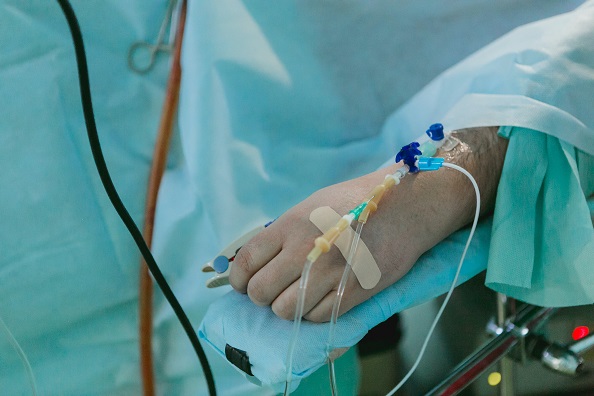Gabapentin may be life-threatening when mixed with other drugs.
Gabapentin, an anti-seizure medication that is also commonly prescribed to treat pain and some mental health conditions, has been linked to fatal opioid overdoses, the Food and Drug Administration (FDA) and the Center for Disease Control and Prevention (CDC) are warning healthcare practitioners.
In December 2019, the FDA required new labeling to be put on the drug warning of potentially life-threatening breathing issues that could arise should it be taken with opioids. Then, in May of this year, the CDC issued a warning that “nearly 90% of drug overdose deaths in which gabapentin was detected also involved an opioid: particularly and increasingly illicit fentanyl.” In late-June, the CDC also cited concerns over “postmortem toxicology test data that detected gabapentin in almost 1 in 10 U.S. overdose deaths between 2019 and 2020.”
Originally approved as an anti-convulsant in the early ‘90s, gabapentin has been increasingly used for other purposes and the federal agencies are concerned that its liberal use is leading to abuse. The CDC reported in its May 13 Morbidity and Mortality Weekly Report, “In 2019, 69 million prescriptions were dispensed in the Unites States, making it the seventh most commonly prescribed medication nationally.”

Dr. Michael Kilkenny, the top public health official in Cabell County, West Virginia, said, “Virtually every person in our community knows someone who has died of an overdose, and the problem includes people from all walks of life. We love all of our people in Huntington, whether they’re completely well, whether they have heart disease or substance use disorder.” Increasingly, he has seen these overdoses tied not only to opioid use but to gabapentin, and he has been tracking the presence of gabapentin in toxicology reports.
“Gabapentin was involved in “10 of 134 overdose deaths in Cabell County in 2016; six of 202 such deaths in 2017; four of 151 in 2018; and three of 113 in 2019,” Kilkenny said. “Any time we see something that makes [the drug overdose situation] worse, we have to take action on that – and gabapentin has met that threshold.”
The anti-seizure medication, when combined with deadly opioid synthetics, such as fentanyl, makes the high more intense and last longer. However, it also leads to dangerous sedation and respiratory depression. Thus, it can easily lead to an overdose.
Dr. Emily Kauffman, director of emergency addiction services at Ohio State University’s Wexner Medical Center in Columbus, said that a patient who is breathing well and is admitted to the ER for acute pain may receive a low dose of gabapentin to manage symptoms.
“This will be done once – usually a combination of 300 milligrams of gabapentin along with non-opioids,” she explained, adding, “But we don’t prescribe gabapentin ‘to go’. Most of this gabapentin, I think, is being prescribed in the outpatient clinics by pain specialists.”
Dr. O. Trent Hall, assistant professor and addiction medicine physician in Ohio State’s Department of Psychiatry and Behavioral Health, said, “It is helpful in reducing restlessness during alcohol and opioid withdrawal. There is mixed, low-quality evidence it may be helpful for some people trying to stop cocaine.” Because it is an anti-seizure medication, gabapentin may lower the chance of having a withdrawal seizure. It also is offered off-label in combination with naltrexone or acamprosate “to help people in early recovery from alcohol use disorder who have anxiety as a trigger for drinking,” Hall said.
Given all of the uses for the anti-seizure drug, it is not likely to go anywhere anytime soon. It is still an essential medication used to manage many conditions.
“Gabapentin is a great medicine,” said Kauffman. “However, it must be used cautiously.”
Sources:
Gabapentin’s link to fatal drug overdoses draws concern


Join the conversation!